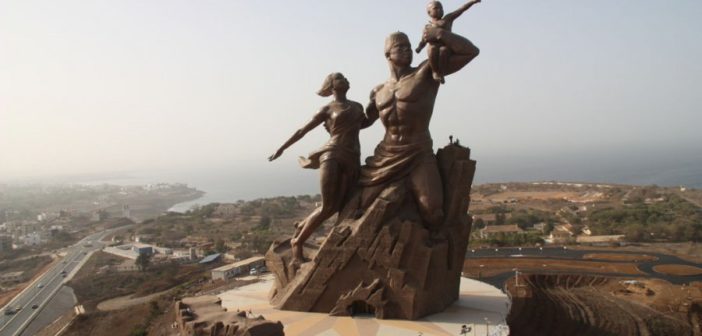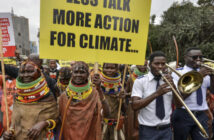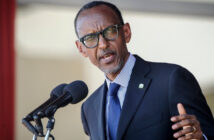Did you know that North Korea is having positive and lucrative relations with Africa? The much isolated nation has firm footprint in several African countries despite the countless United Nations sanctions placed on it.
For years, North Korea has used African nations as one of its financial lifelines, building infrastructure and selling weapons and other military equipment as sanctions mounted against its authoritarian regime, though China is by far North Korea’s largest trading partner, the smaller African revenue streams have helped support the impoverished Hermit nation.
In Namibia, the futuristic national history museum, the sleek presidential palace, the sprawling defense headquarters and the shadowy munitions factory. They were built — or are still being constructed — by North Korea, for a profit. The Namibian government sees North Korea as a longtime ally, a partner in development and an affordable contractor. “We’ve relied on them for help to develop our infrastructure, and their work has been unparalleled,” said Frans Kapofi, Namibia’s minister of presidential affairs.
The Namibian government has spent about $100 million on North Korean projects since 2002, according to officials here — a sum that goes a long way in an Asian nation where per capita income is about $1,000 per year. But in comparison, China imports about $3 billion in North Korean goods per year.
Last year, the United Nations said that Namibia had violated U.N. sanctions by maintaining its commercial ties to North Korea. Among other activities, Namibia had contracted with a North Korean company called Mansudae Overseas Projects to construct a munitions factory as well as a new military academy. A company with links to Mansudae, called the Korea Mining Development Trading Corporation (known as KOMID) also worked on the munitions factory, according to the U.N. report. The Treasury Department last year called KOMID North Korea’s “primary arms dealer” and sanctioned two North Korean officials based in Windhoek.
Other African countries were also supposed to end their economic and military relationships with North Korea after the U.N. sanctions were imposed. But it remains unclear whether some have done so. U.N. member states are obliged to issue reports describing their efforts to enforce sanctions. But the U.N. panel of experts report in 2016 noted “an extremely high number of non-reporting and late-reporting States” and the “poor quality and lack of detail of the reports received.”
Some African nations have appeared to distance themselves from North Korea. After photos appeared showing North Korean military trainers wearing Ugandan military uniforms last year, Uganda’s foreign minister, Sam Kutesa, said on state television, “We are disengaging the cooperation we are having with North Korea, as a result of U.N. sanctions.”
Even if North Korea’s commercial ties to Africa do eventually fade, relics of the engagement will endure. In Dakar, Senegal’s capital, a soaring, North Korea-built statue — larger than the Statue of Liberty — rises from a hilltop, depicting a man holding a baby in one arm and embracing a woman with the other. Other North Korean statues, mostly of African revolutionary leaders, were sold to Mozambique, Zimbabwe, Botswana, Benin and Congo. U.N, sanctions introduced in 2016 barred countries from buying any more such statues. One of the biggest projects is the war memorial outside of Windhoek, where a towering bronze statue of an unknown soldier carrying a rifle stands in front of a slim obelisk.
North Korea’s commercial relationships are only one sign of the surprisingly close ties many African leaders have with the secretive, highly repressive Asian country.
Yoweri Museveni, Uganda’s longtime president said he learned basic Korean from Kim Il Sung, the former leader of North Korea and grandfather of current leader Kim Jong Un, during various visits to that country. Zimbabwean leader Robert Mugabe sent two rhinos to Pyongyang, the North Korean capital, as a show of solidarity in the 1980s (both died shortly after arriving). In Maputo, Mozambique’s capital, a street named Avenida Kim Il Sung runs through the heart of downtown. In Namibia’s national museum, a black-and-white picture of a North Korean soldier leading a group of local soldiers hangs in the foyer.
“Our world outlook was determined by who was on our side during the most crucial time of our struggle, and North Korea was there for us,” said Tuliameni Kalomoh, a senior adviser in the Namibian Ministry of Foreign Affairs and the country’s former ambassador to Washington.




